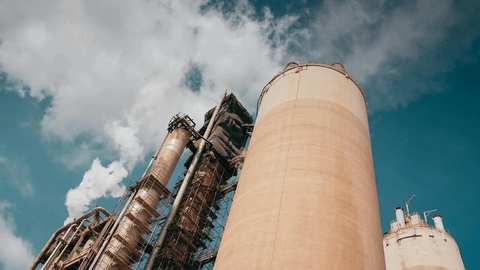The University of Waterloo Climate Institute brings together scientists and students to elevate and enhance the impact and excellence of innovative interdisciplinary research and education that empowers business, government and civil society to respond effectively to the climate crisis.
University of Waterloo’s unique combination of strengths and depth of expertise allows us to deal head-on with the complexity and interconnectedness of social, political and technological dimensions of the climate crisis.
Our expertise and focus
Our three core areas of research and innovation are developed through lenses of equity, justice, governance, and innovation to create truly impactful solutions for this existential global challenge.
News
Lauryn Margarit’s Journey: The intersection of Equity and Climate Change
Lauryn Margarit’s journey from justice services to climate advocacy highlights the link between equity and environmental issues. At the John Howard Society in 2023, she saw how wildfires disproportionately affected homeless populations, fueling her passion for environmental justice. This led her to pursue a Master of Climate Change at the University of Waterloo, where she deepened her understanding of climate impacts on marginalized communities. Her studies and experience prepared her for a role as a policy analyst with Environment and Climate Change Canada, focusing on making federal climate data accessible to enhance community resilience. As she graduates, Margarit is committed to continuing her work in climate policy.
Leveraging Nature-Based Solutions to Achieve Climate and Biodiversity Goals
As global leaders gather at the 16th Convention on Biological Diversity (COP 16) in Cali, Colombia, a new brief by University of Waterloo and Climate Institute researchers underscores the importance of nature-based solutions (NbS) in addressing climate change and biodiversity loss. Authored by Marie-Claire Cordonier Segger and colleagues, the brief highlights how protecting, managing, and restoring ecosystems can mitigate climate risks and conserve biodiversity. It advocates for Indigenous-led conservation and stronger policies to protect critical ecosystems like peatlands and wetlands. The brief urges the development of a National Nature-Based Solutions Strategy to position Canada as a leader in NbS.
Waterloo’s Circular Economy Research Gets $2.5M Boost to Transform Waste into Valuable Products
Researchers at the University of Waterloo have been awarded $2.5 million by NSERC and SSHRC to develop sustainable bioprocesses that convert waste materials, such as plastics and CO2 emissions, into valuable products. This funding is part of the National Science Foundation Global Centers initiative. The project, led by Dr. Christian Euler, involves 40 researchers from 18 institutions and aims to reduce pollution and promote a circular economy. The interdisciplinary team will leverage synthetic biology, carbon capture, and material science to create next-generation bioprocesses, while also training future scientists and policymakers.
Events
Eco Haunt: Bonfire
Come and join the Climate Action Program's for their student event: Eco Haunt! Join the spooky Halloween night celebration wearing your best costume! Enjoy delicious s’mores and hot chocolate by the fire.
Walking the Path of Hope - Climate Anxiety and the Healing Forest
Join us for an empowering event that explores the deep connections between land, climate, and healing, featuring a fireside chat with Dr. Kelsey Leonard and Elder Myeengun Henry. Attendees will also experience the Healing Forest exhibit, reflecting on the impacts of colonialism and the resilience of Indigenous people.












